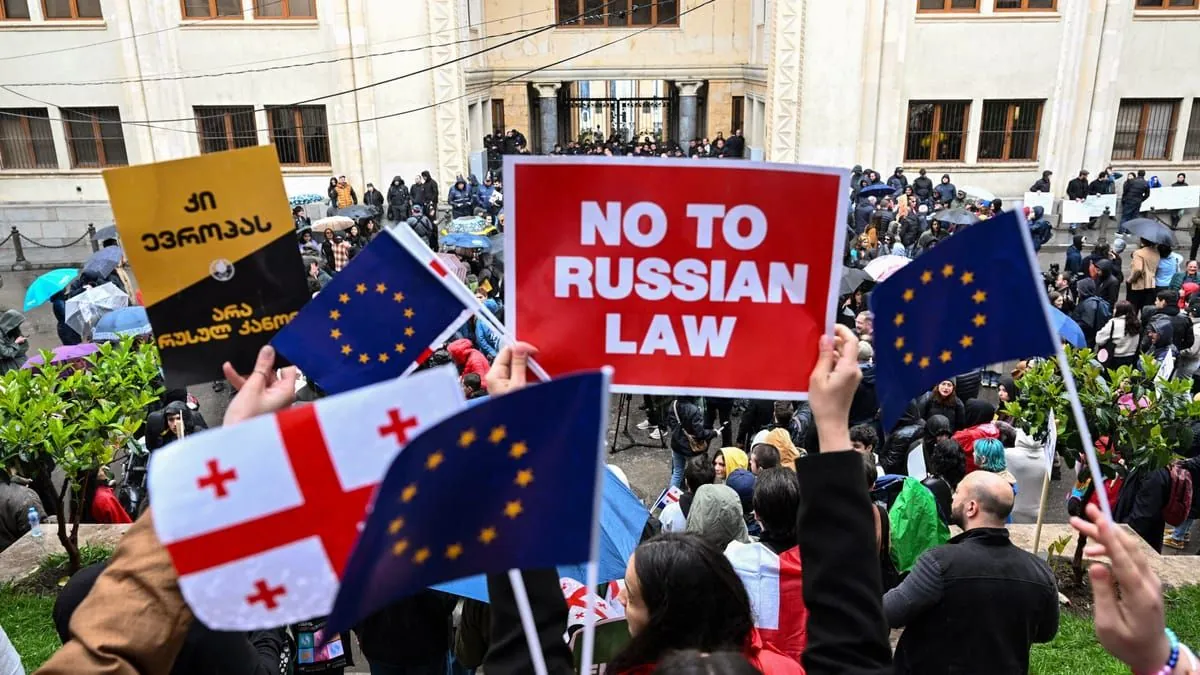EU Warns Georgia: Democratic Backsliding May Lead to Sanctions
EU ambassador cautions Georgia about potential consequences of deviating from democratic path. Upcoming elections and controversial "foreign agent" law strain relations with Western partners.

The European Union has issued a stern warning to Georgia, cautioning that any deviation from democratic principles could result in severe consequences, including potential sanctions. This development comes as the South Caucasus nation prepares for its parliamentary elections on October 26, 2024.
Pawel Herczynski, the EU ambassador to Tbilisi, emphasized the bloc's readiness to collaborate with any democratically elected government in Georgia. However, he made it clear that the EU would not accept the country as a member if it transformed into a "one-party state" lacking political opposition.
The ambassador stated, "There is a possibility of introducing sanctions in the future if the elections do not meet democratic standards." This warning underscores the EU's commitment to upholding democratic values in its candidate countries.

Georgia's relationship with the EU has deteriorated significantly since the ruling Georgian Dream party passed a controversial "foreign agent" law in May 2024. Critics argue that this legislation, which requires organizations receiving more than 20% of their funding from overseas to register as "agents of foreign influence," indicates a shift away from Western values and a lean towards Russia.
The passage of this law sparked some of the largest protests in Georgia since its independence from the Soviet Union in 1991. For two months, opponents mounted demonstrations in an unsuccessful attempt to overturn the legislation. These events have not only soured relations with Brussels but also with Washington.
"The law is necessary to protect our country's sovereignty."
In response to what Herczynski described as an "unfriendly" attitude towards the bloc, EU representatives have not held meetings with the Georgian government since June 2024. This suspension of dialogue followed internal discussions among EU member states on how to address the "anti-Western and anti-European narratives" espoused by Georgia's government.
The EU granted candidate status to Georgia in 2023, marking a significant step towards eventual membership. However, the country's EU accession process was effectively halted in the summer of 2024 due to the ongoing political crisis.
It's worth noting that Georgia, with a population of approximately 3.7 million, has been seeking EU membership since the early 2000s. The country signed an Association Agreement with the EU in 2014 and has enjoyed a visa-free regime for short-term stays since 2017. These developments highlight the complex nature of Georgia's relationship with the EU and its aspirations for closer integration with Western institutions.
The current situation also affects Georgia's relations with the United States. In September 2024, the US withdrew an invitation to Georgian Prime Minister Irakli Kobakhidze to attend a reception hosted by President Biden during the UN General Assembly, further illustrating the strain on Georgia's ties with its Western partners.
As Georgia approaches its parliamentary elections, the international community will be closely watching to ensure the process is free, fair, and peaceful. The outcome of these elections could have significant implications for Georgia's future relations with the EU and its path towards European integration.


































